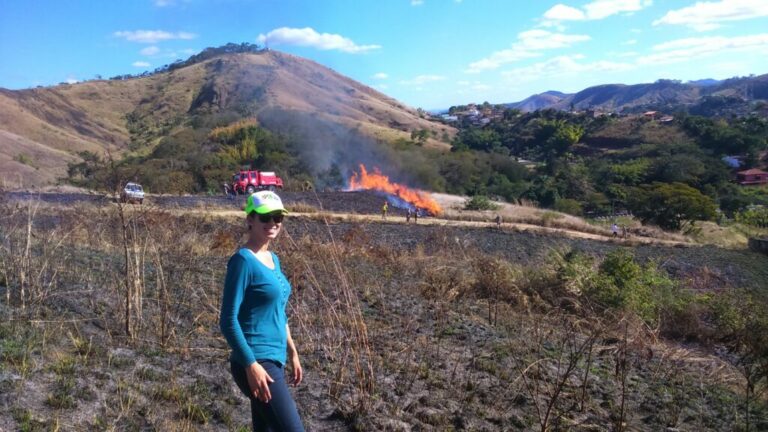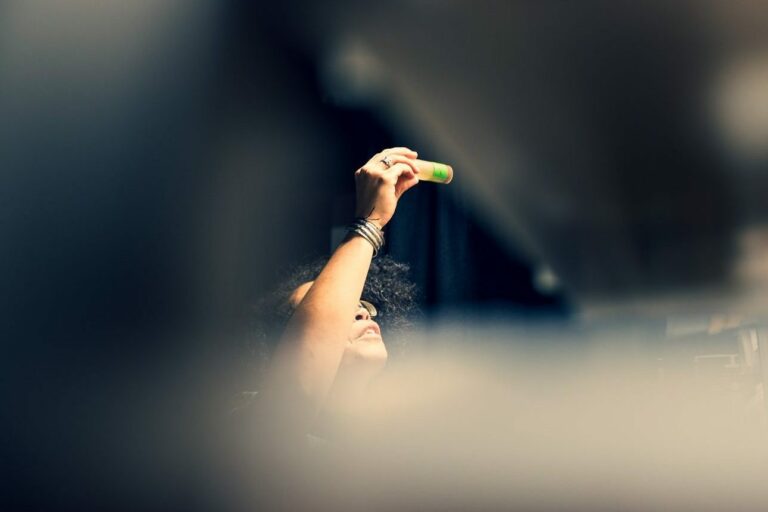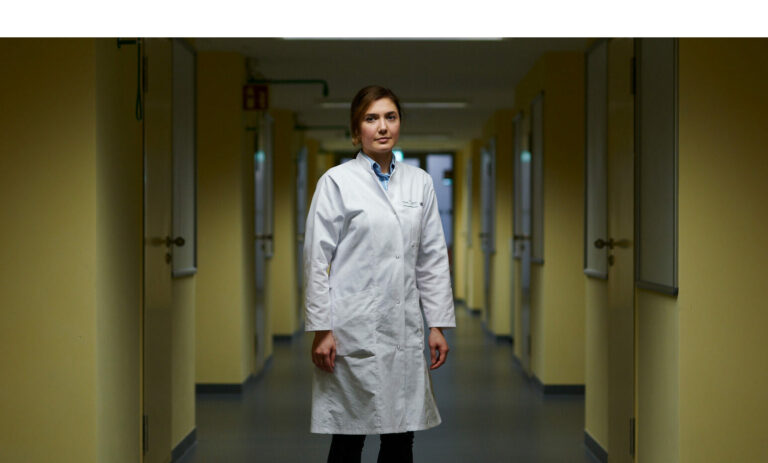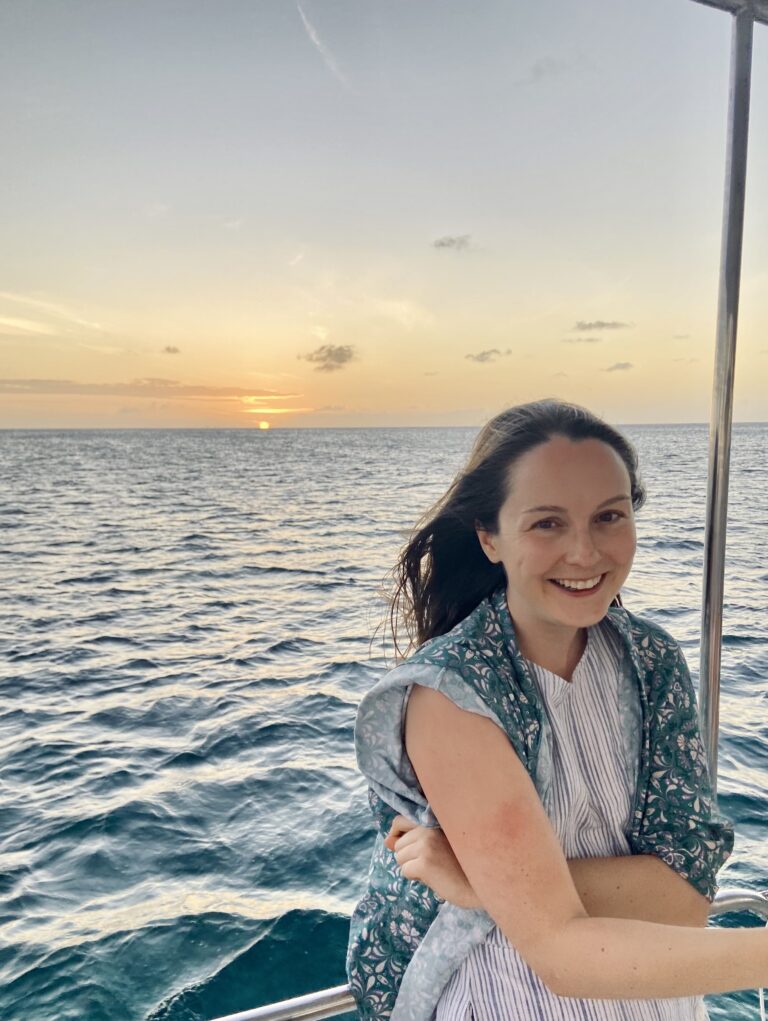
Interview With Dr. Julietta Steinhauer: Spending Her Days Uncovering the Lives of ‘Normal People’ in Ancient Greece
In the series “33 questions” we introduce, in no particular order, our WiRe Fellows who are currently working on a research project here at the University of Münster. Why 33? Well, if we think of the rush hour of life, it is kind of the age that lies in its middle. And we also like the number😉.
In today’s episode we are speaking with Dr. Julietta Steinhauer, historian and passionate researcher of normal people in ancient times.

1. What motivated you to work in the field of ancient history?
When I was six years old I visited the ancient city of Troy in Turkey and from then on, I have always wanted to study ancient history.
2. Describe your daily work in three words.
Read. Write. Repeat.
3. Describe your research topic in three words.
Religion. Migration. Inequality.
4. A good ancient historian needs?
Passion, patience, an eye for detail and the ability to see the greater picture.

5. What is the best experience you have had as a researcher?
Presenting my research and enthusing academics and non-academics alike.
6. What was your biggest research disaster?
Translating several hundred Greek inscriptions for weeks only to find out that they were already translated and available online.
7. Which (historical) important scientist would you like to have dinner with? What would you ask?
Aristarchus of Samos (310 – c. 230 BC) and how he came to develop the heliocentric model.
8. If time and money were no object: Which research project would you like to do?
A detailed bio-archaeological and epigraphic analysis of all known ancient Greek poleis/cities in the Aegean to figure out gender constellation and migration patterns.
9. What is your favorite research discipline other than your own?
Astrophysics.
10. What do you consider the greatest achievement in the history of your field?
The advancements made in the study of ancient slavery starting with Moses Finley, which helped greatly to understand new world slavery and influenced contemporary studies of the legacies of slavery both ancient and modern.
11. What direct or indirect relevance does your research have for society?
By trying to understand patterns of ancient migration and the ways in which women were integrated into their new environments and the sort of labour they did/were forced to do abroad, helps us understand better how societies have worked for millenia. It can also help us build an economic model that includes ‘invisible labour’ of carers, textile and fieldworkers that is equally important today as it was in the ancient world.
12. What do you like most about the “lifestyle” of a scientist? And what least of it?
I love the international community and exchange with colleagues from all over the world. I dislike the fact that it is never-ending and can take over your life at times and yet, no project feels like it has been finished!
13. Do you think your career would have evolved differently if you were a man?
Yes, significantly.
14. If you were the research minister of Germany, what would you do to improve the situation of women in science?
Give women research positions with job security/permanent positions as it is difficult to go from place to place every few years with a family.
15. What is the biggest challenge for you when it comes to balancing family and career?
Carving out research time.

16. How do you master this challenge?
I usually take a few weeks or months a year where I go to a place like Münster and finish off projects.
17. How often do you as a friend / partner / mother / daughter feel guilty when you have to meet a deadline – again?
Almost daily!
18. How do you keep your head clear when you are stressed?
Running & Pilates.
19. What makes you most happy about the world?
Sounds cheesy but I have to say… children.
20. How would you explain your research area and topic to a child?
In my research I am looking at ‘normal people’ in ancient Greece and Rome…people like you and me and try to figure out what their every-day lives looked like. For ancient Greece, it is rather difficult to find evidence for anyone who was not from the upper classes, let alone women and children! I am particularly interested to see people’s movements – which countries they moved to and for what reasons, how they learned new languages and became part of new neighbourhoods and above all, what their religious practices were: I ask questions such as “did these migrants ‘bring with them’ the gods of their hometowns or did they switch to the local gods of their new environment?” and, if they brought their own gods “did they convince others that these gods were worth worshipping? Did they become popular?”
21. How did you imagine your future as a child? What profession did you want to pursue?
I always wanted to become an archaeologist so I think I came pretty close!
22. What surprised you most about the University of Münster?
How excellent the library is.
23. What is the biggest difference between the academic system you have last done research in and the academic system as you experience it in Münster, or, or Germany in general?
The system in the UK is far less hierarchical than that in Germany and more women are working in academia, which is very positive. Positions are usually long-term or permanent which makes it much easier to combine family and research/work. On the other hand, UK universities especially in the humanities, are relying heavily on student fees which means that expectations as a university teacher are very high (higher teaching loads, more coursework essays and more 1:1 tuition and pastoral care) and no ‘assistants’ (HiWis) – which leaves very little time for research.
24. What is your favorite place in Münster?
The lake!
25. What are the advantages and disadvantages of doing a Research@home-WiRe-fellowship?
It is fantastic to be able to do the fellowship at all despite the restrictions. However, the on-and off homeschooling situation is not helping and I would love to be able to physically enter and work in a library.
26. Which of your traits bothers you the most in your daily work?
That I cannot work after 6pm.
27. And which of your traits help(s) you the most in your daily work?
That I am good at getting up early and get things done.
28. What worries you most about the world?
Climate change and conspiracy theories.
29. If you could travel in time: in which epoch and at which discovery or event would you have liked to have been there?
The assassination of Julius Caesar.
30. What or who inspired you to become an Ancient Historian?
The poems of Homer, the Iliad and the Odyssey and Heinrich Schliemann.
31. What is your favorite German word?
Streichholzschaechtelchen.
32. Which hobby have you given up for a life in academia?
Travel for fun.
33. What is your favourite place to relax from research during the pandemic?
Long walks in the Surrey Hills.







